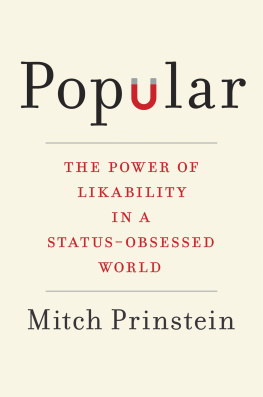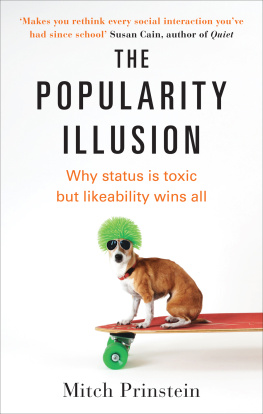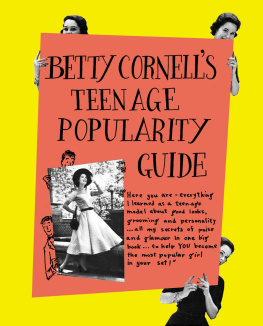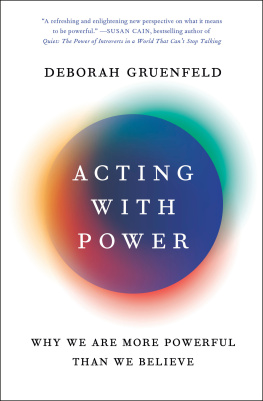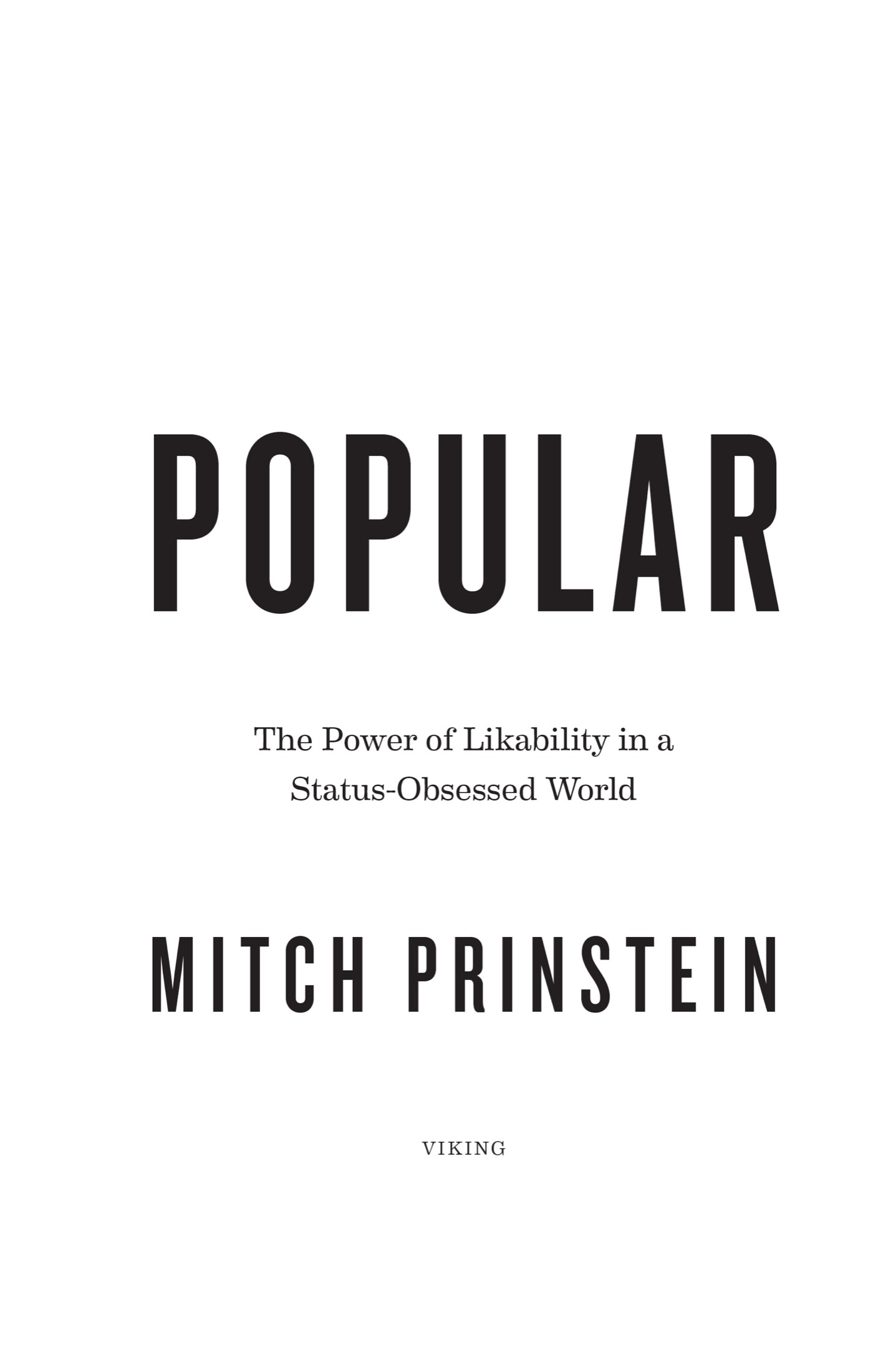Mitch Prinstein - Popular: The Power of Likability in a Status-Obsessed World
Here you can read online Mitch Prinstein - Popular: The Power of Likability in a Status-Obsessed World full text of the book (entire story) in english for free. Download pdf and epub, get meaning, cover and reviews about this ebook. year: 2017, publisher: Viking, genre: Home and family. Description of the work, (preface) as well as reviews are available. Best literature library LitArk.com created for fans of good reading and offers a wide selection of genres:
Romance novel
Science fiction
Adventure
Detective
Science
History
Home and family
Prose
Art
Politics
Computer
Non-fiction
Religion
Business
Children
Humor
Choose a favorite category and find really read worthwhile books. Enjoy immersion in the world of imagination, feel the emotions of the characters or learn something new for yourself, make an fascinating discovery.
- Book:Popular: The Power of Likability in a Status-Obsessed World
- Author:
- Publisher:Viking
- Genre:
- Year:2017
- Rating:3 / 5
- Favourites:Add to favourites
- Your mark:
Popular: The Power of Likability in a Status-Obsessed World: summary, description and annotation
We offer to read an annotation, description, summary or preface (depends on what the author of the book "Popular: The Power of Likability in a Status-Obsessed World" wrote himself). If you haven't found the necessary information about the book — write in the comments, we will try to find it.
No matter how old you are, theres a good chance that the word popular immediately transports you back to your teenage years. Most of us can easily recall the adolescent social cliques, the high school pecking order, and which of our peers stood out as the most or the least popular teens we knew. Even as adults we all still remember exactly where we stood in the high school social hierarchy, and the powerful emotions associated with our status persist decades later. This may be for good reason.
Popular examines why popularity plays such a key role in our development and, ultimately, how it still influences our happiness and success today. In many wayssome even beyond our conscious awarenessthose old dynamics of our youth continue to play out in every business meeting, every social gathering, in our personal relationships, and even how we raise our children. Our popularity even affects our DNA, our health, and our mortality in fascinating ways we never previously realized. More than childhood intelligence, family background, or prior psychological issues, research indicates that its how popular we were in our early years that predicts how successful and how happy we grow up to be.
But its not always the conventionally popular people who fare the best, for the simple reason that there is more than one type of popularityand many of us still long for the wrong one. As children, we strive to be likable, which can offer real benefits not only on the playground but throughout our lives. In adolescence, though, a new form of popularity emerges, and we suddenly begin to care about status, power, influence, and notorietyresearch indicates that this type of popularity hurts us more than we realize.
Realistically, we cant ignore our natural human social impulses to be included and well-regarded by others, but we can learn how to manage those impulses in beneficial and gratifying ways. Popular relies on the latest research in psychology and neuroscience to help us make the wisest choices for ourselves and for our children, so we may all pursue more meaningful, satisfying, and rewarding relationships.
Mitch Prinstein: author's other books
Who wrote Popular: The Power of Likability in a Status-Obsessed World? Find out the surname, the name of the author of the book and a list of all author's works by series.

